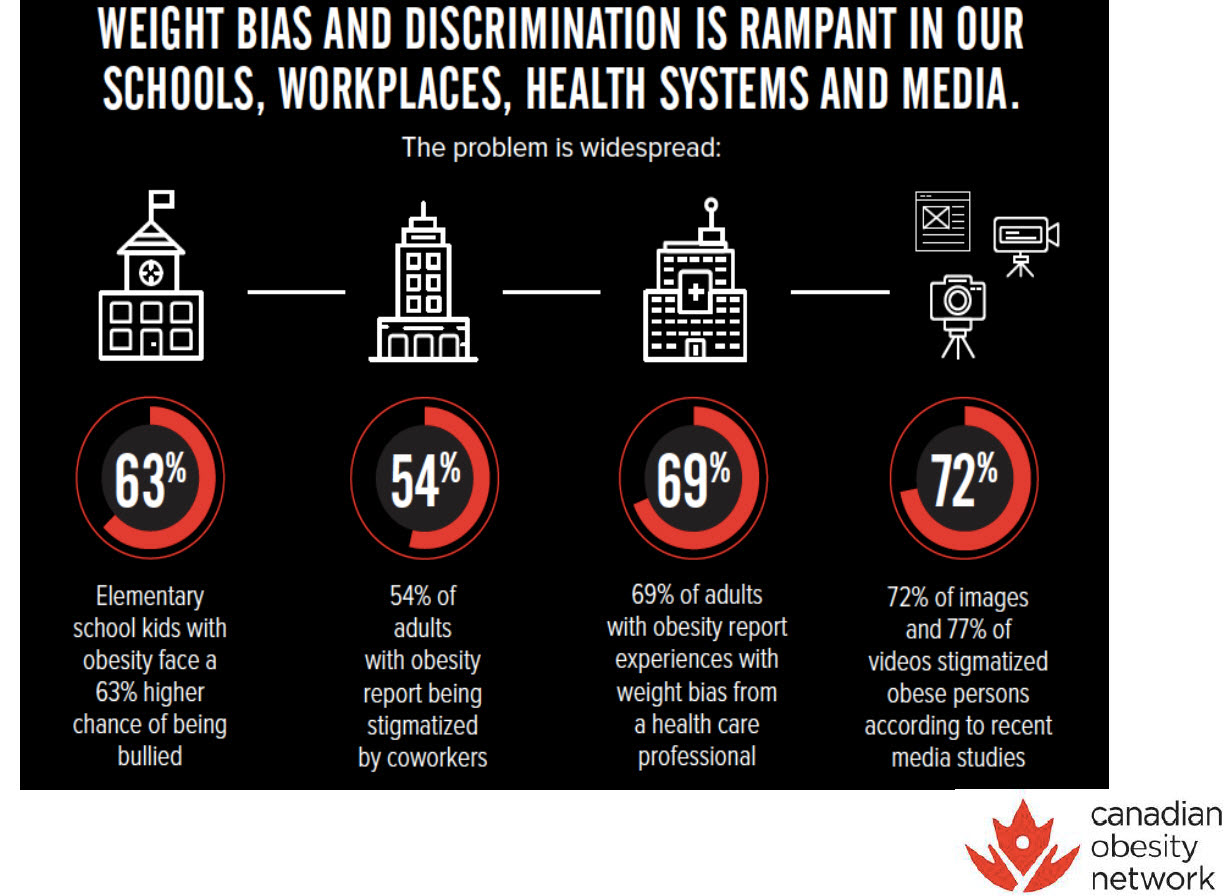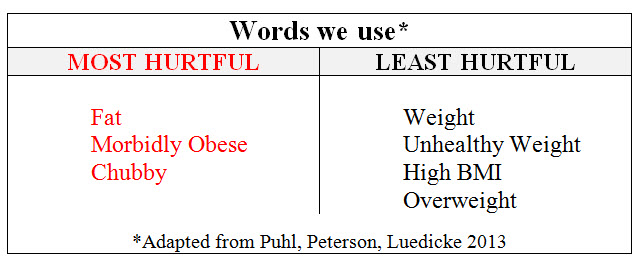Did you know that body weight bias and discrimination are real and rampant? A recent study looking at news stories in media found that 72% of images and 77% of videos stigmatized people with obesity[1]. With so much body weight bias in our society, what can we do to help? As dietitians we reviewed the science and bring you these 3 tips to help stop the body weight bias, with hopes that we can all make lasting positive change in response to weight shaming, stigma and discrimination.

- BECOME AWARE – Do you have a weight bias? A first step in addressing weight stigma is to become aware of our own potential attitudes and assumptions about body weight. What do you think and say about people with obesity? Did you know being called “fat” is the most common reason children are bullied?[2] A Harvard University survey reveals many people have an automatic preference for ‘thin people’ relative to ‘fat people’.[3] This survey is based on an Implicit-Association Test (IAT) that anyone can take, and measures the implicit attitudes and beliefs that people are either unwilling or unable to report. The WEIGHT-IAT asks you to distinguish images of people who are described as ‘obese’ or ‘fat’ and people who are ‘thin’. Try the IAT here: https://implicit.harvard.edu/implicit/selectatest.html – and select the Weight IAT to discover whether you have a hidden weight bias.
- SPEAK WITH COMPASSION – Use words that hurt less. At a recent nutrition symposium, we learned about research that shows the choice of words we use can have different impacts on people with obesity. [4]

- Body weight should not be a topic of social conversation. It’s a deeply personal subject for most people. Even as a health professional, ask permission to speak about body weight.
- Use person first language rather than describe people by their disease. ex. Saying “a person with obesity” is person first langauge. Saying “an obese person” is not person first language. It’s the same way you would say a person “has a broken leg” rather than say they “are a broken leg.”
- SHOW RESPECT – Every body deserves to be treated with respect and dignity. Are YOU ready to help STOP the weight bias? Here are some tips:
- Notice weight shaming and speak up when you hear inappropriate comments or jokes. Talk about someone’s performance, enthusiasm or other positive attributes rather than talking about their weight. If you notice someone blaming a person for their weight, remind yourself and others “We don’t know their story, so don’t blame them for their size.”
- Shift the focus from weight to health and well-being.
- Adjust your attitude – if you change your thoughts, your feelings and actions will follow.[5]
The journey toward well-being starts with how we eat and dietitians have the knowledge, compassion and flexibility to help Canadians achieve their goals. If you have questions about food and health contact a Registered Dietitian for reliable, life-changing advice.
[1] Heuer C, Puhl R. Obesity stigma in online news: A visual content analysis. Journal of Health Communication. 2011
[2] Puhl, R. et.al Cross-national perspectives about weight-based bullying in youth: nature, extent and remedies. Pediatric Obesity, 2016
[3] Harvard University, Project Implicit Sourced Nov 2017 https://implicit.harvard.edu/implicit/selectatest.html
[4] Adapted from Puhl, Peterson, Luedicke 2013
[5] Michael Vallis, Canadian Obesity Network Presentation 2011